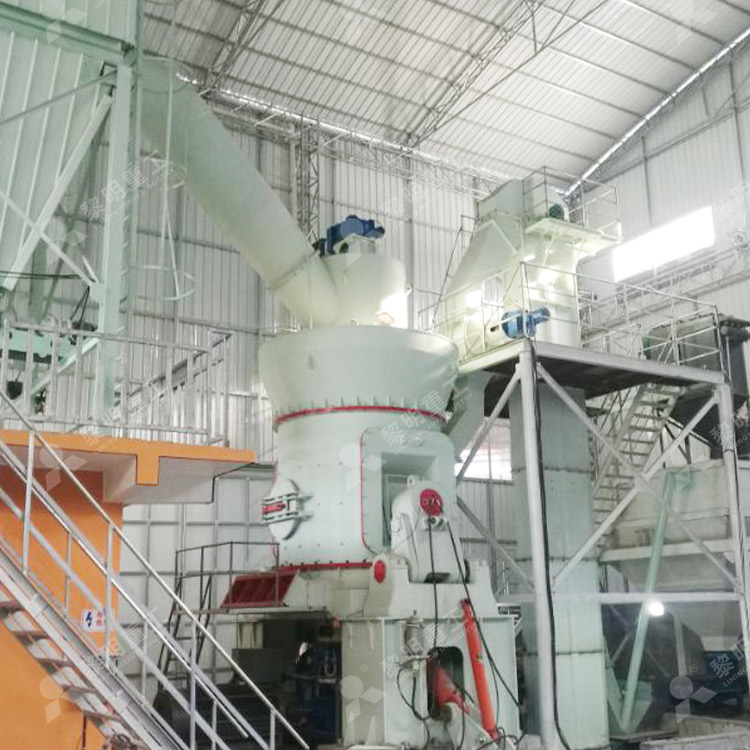Producing High-Quality 200-Mesh Dolomite Powder: A Guide to an Efficient Grinding Production Line
Introduction
Dolomite, a calcium magnesium carbonate mineral, is a versatile industrial material valued for its properties in numerous applications. Its usefulness, however, is heavily dependent on achieving a specific and consistent fineness. A grinding production line designed to produce 200-mesh dolomite powder represents a critical investment for suppliers targeting high-value markets. This article explores the components, technological advantages, and economic benefits of a modern, efficient dolomite grinding plant optimized for this popular specification.
The Significance of 200 Mesh
The 200-mesh standard (approximately 74 microns) is a key benchmark in the industry. Powder of this fineness offers an ideal balance between surface area and flow characteristics, making it suitable for a wide range of uses. For dolomite, this includes:
Agriculture: As a soil conditioner to neutralize acidity and supply magnesium and calcium.
Animal Feed: As a dietary supplement for livestock.
Glass & Ceramics: As a flux agent and source of magnesium oxide.
Paints & Coatings: As a functional filler to improve volume and durability.
A dedicated production line ensures a stable and high-yield output of this in-demand product grade.
Core Technology: Precision Grinding Mill Selection
The heart of the production line is the grinding mill. For a 200-mesh dolomite output, several mill types are effective, with the choice often depending on desired capacity, energy efficiency, and investment level. Raymond Mills (Vertical Roller Mills) are an excellent and cost-effective choice for this application. They offer:
Targeted Grinding: Specifically designed to efficiently grind non-metallic minerals like dolomite to the 80-400 mesh range.
Energy Efficiency: Their grinding mechanism consumes less power per ton compared to traditional ball mills for this fineness level.
Low Maintenance: Simple and robust design ensures high operational availability and lower long-term maintenance costs.
For higher capacities or even finer products, European-style Grinding Mills or Ultra-fine Grinding Mills can be integrated.
A Streamlined and Cohesive Production Process
A professional 200-mesh dolomite line is a fully integrated system. The process begins with the primary crushing of raw dolomite rocks using a Jaw Crusher to reduce them to a smaller size (e.g., below 30mm). A Bucket Elevator then transports the crushed material to a storage silo.
A consistent feed is crucial for grinding stability. A Vibrating Feeder and Screw Conveyor regulate the flow of raw material into the grinding mill. Within the mill, the dolomite is ground and classified; fine powder meeting the 200-mesh standard is carried by the air stream to a Pulse Jet Dust Collector for efficient separation from the airflow. The collected product is then conveyed to a product silo for packaging. Oversized particles are recycled back into the grinding chamber for further size reduction.
Economic and Operational Advantages
Investing in a dedicated dolomite grinding line brings significant benefits:
High Product Value: Converting raw dolomite into precisely controlled 200-mesh powder dramatically increases its market value.
Automation: Modern lines equipped with PLC control systems allow for easy operation, real-time monitoring, and consistent product quality with minimal manual intervention.
Environmental Compliance: The integration of high-efficiency dust collectors throughout the plant ensures a clean, safe working environment and full adherence to environmental standards.
Raymond Mill, vertical mill can be your choose:
A well-engineered production line for 200-mesh dolomite powder is a strategic asset. It transforms a basic mineral into a high-value, market-ready product. By focusing on the correct mill selection, systematic process flow, and automation, operators can achieve superior product quality, high throughput, and a strong return on investment, positioning themselves as reliable suppliers in the competitive industrial minerals sector.





